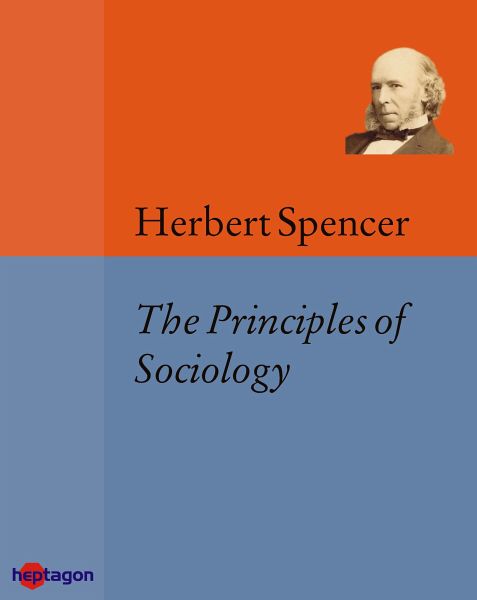
Principles of Sociology (eBook, ePUB)
Vol. I-IV.

PAYBACK Punkte
0 °P sammeln!
Auguste Comte . Plan de travaux . Catéchisme positiviste . Cours de philosophie positive (47. - 51. leçon) Émile Durkheim . De la division du travail social . Les règles de la methode sociologique . Le suicide . Les formes élémentaires de la vie religieuse . Sociologie et philosophie . Leçons de sociologie Ludwig Gumplowicz . Grundriß der Soziologie William James . The Varieties of Religious Experience Karl Marx und Friedrich Engels . Die Deutsche Ideologie . Das Kapital (Band I) . Der 18. Brumaire des Louis Bonaparte . Manifest der Kommunistischen Partei Harriet Martineau . Society in...
Auguste Comte . Plan de travaux . Catéchisme positiviste . Cours de philosophie positive (47. - 51. leçon) Émile Durkheim . De la division du travail social . Les règles de la methode sociologique . Le suicide . Les formes élémentaires de la vie religieuse . Sociologie et philosophie . Leçons de sociologie Ludwig Gumplowicz . Grundriß der Soziologie William James . The Varieties of Religious Experience Karl Marx und Friedrich Engels . Die Deutsche Ideologie . Das Kapital (Band I) . Der 18. Brumaire des Louis Bonaparte . Manifest der Kommunistischen Partei Harriet Martineau . Society in America . Eastern life George Herbert Mead . Mind, Self & Society Vilfredo Pareto . Trattato di sociologia generale Ferdinand de Saussure . Cours de linguistique generale Max Scheler . Die Wissensformen und die Gesellschaft Georg Simmel . Philosophie des Geldes . Soziologie . Grundfragen der Soziologie . Über soziale Differenzierung . Einleitung in die Moralwissenschaft . Die Religion . Ausgewählte Aufsätze Herbert Spencer . The Principles of Sociolgy Thorstein Veblen . The Theory of the Leisure Class Max Weber . Die protestantische Ethik . Die Wirtschaftsethik der Weltreligionen . Wirtschaft und Gesellschaft . Die Verhältnisse der Landarbeiter im ostelbischen Deutschland . Zur Psychophysik der industriellen Arbeit . Über einige Kategorien der verstehenden Soziologie . Sonstiges
Dieser Download kann aus rechtlichen Gründen nur mit Rechnungsadresse in A, B, BG, CY, CZ, D, DK, EW, E, FIN, F, GR, HR, H, IRL, I, LT, L, LR, M, NL, PL, P, R, S, SLO, SK ausgeliefert werden.










![On the Principles of Social Gravity [Revised edition] (eBook, ePUB) Cover On the Principles of Social Gravity [Revised edition] (eBook, ePUB)](https://bilder.buecher.de/produkte/52/52382/52382255n.jpg)


